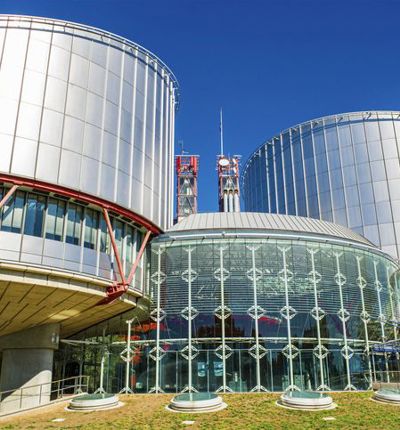
Foreign interference in elections scrutinised in European Court of Human Rights judgment
Lawyers representing three MPs in a legal campaign against the UK government have welcomed scrutiny of foreign interference in elections in a judgment handed down by the European Court of Human Rights (ECtHR), calling on states not to remain “passive” against threats to electoral processes.
Posted on 24 July 2025
The case was brought to the ECtHR by former MPs Ben Bradshaw, Caroline Lucas and Alyn Smyth in January 2023.
The three MPs, supported by campaign group Citizens, argued that the government acted unlawfully in failing to order an investigation in 2019 into the possibility of Russian interference in the 2014 Scottish independence referendum, the 2016 Brexit referendum, and the 2019 UK general election.
Despite rejecting the group’s claim that the government had breached duties under the European Convention on Human Rights (ECHR) to uphold and protect electoral processes, the ECtHR accepted that states and governments must take positive action to safeguard against foreign interference.
The claim was launched in 2020 after the government failed to act on and investigate findings from the Intelligence and Security Committee ‘Russia’ report, which was published that year (after being presented to then Prime Minister Boris Johnson in 2019) and found that “the UK is clearly a target for Russia’s campaigns and political influence operations”.
The three Parliamentarians also highlighted a report titled ‘Disinformation and fake news’ from the Digital Culture, Media and Sports Committee (DCMS), which found that there had been “clear and proven Russian influence in foreign elections” following an 18-month inquiry.
The group filed their claim with the High Court in the UK, arguing that the government had failed to investigate these credible allegations of interference in the UK electoral system, or have in place a legislative and policy framework that will identify and protect against interference in the electoral system.
The three MPs said that this breached positive obligations under Article 3 Protocol 1 of the European Convention on Human Rights (ECHR), which secures the right to free and fair elections. These positive obligations require a government or state to actively take steps to ensure that elections are conducted fairly.
However, the challenge was rejected by the UK High Court and permission to appeal the ruling was refused.
Following this, the three Parliamentarians took their case to the ECtHR, and in January 2023 the claim was accepted and began entering through proceedings.
While the ECtHR has now ruled against the group’s claim that Article 3 Protocol 1 was breached - determining that whilst there were ‘shortcomings’ initially, the UK’s response to the threat of Russian interference did not fall outside the wide margin of appreciation afforded to it in this area - other aspects of the judgment have been welcomed.
The judgment reinforced the positive obligations of governments to protect from foreign interference in elections, saying that “states should not remain passive when faced with evidence that their democratic processes are under threat” and that there are circumstances in which States’ must investigate credible allegations of interference in elections.
Caroline Lucas, former Green Party MP, said:
“It’s hugely significant that the Court has found in favour of our case that foreign interference is a threat to our right to free and fair elections and that they recognise there will be cases when states do have a duty to investigate.
“And while it’s clearly disappointing that they found that the Government had done enough, I’ve no doubt that this will continue to be contested. The bottom line is that we still cannot be assured that our democratic system is robust against foreign interference – and for as long as that is the case, we will continue to explore all possible avenues for remedy.”
Alyn Smyth, former SNP MP, said:
“The Court accepted we had a right to bring the case, that there is a credible risk of mis- and -disinformation to our (and other states’) democracy and that governments have an obligation to investigate and enact measures to protect it. These were all points the UK government denied. The Court also ruled that the actions taken by the UK could not be proven to be insufficient, and where I respect the Court I’m quite sure we have not heard the last of the role social media plays in our democracy.”
Leigh Day partner Tessa Gregory, who represents the three MPs along with solicitor Tom Short, said:
“This is the first time the European Court has considered the obligations on States to protect their democracies from hostile state interference. In an important judgment the Court has accepted (contrary to the UK’s submissions) that to safeguard citizens’ right to free and fair elections States may have to take positive action to investigate and combat foreign interference. This decision has far-reaching implications and puts European states on notice that they must ensure the integrity of their electoral processes in the face of hostile state interference. Our clients continue to think the UK has fallen short protecting our democracy and are considering next steps in relation to the Court’s conclusion that there has been no violation of their right to free and fair elections.”

Tessa Gregory
Tessa is an experienced litigator who specialises in international and domestic human rights law cases

Catastrophic MoD data breach of sensitive personal information increases risk to safety of Afghans who worked with UK Forces
The lifting of a super injunction by the High Court in London has revealed that the Ministry of Defence (MoD) experienced a serious data breach of the sensitive personal data of many thousands of Afghan citizens in 2022.


